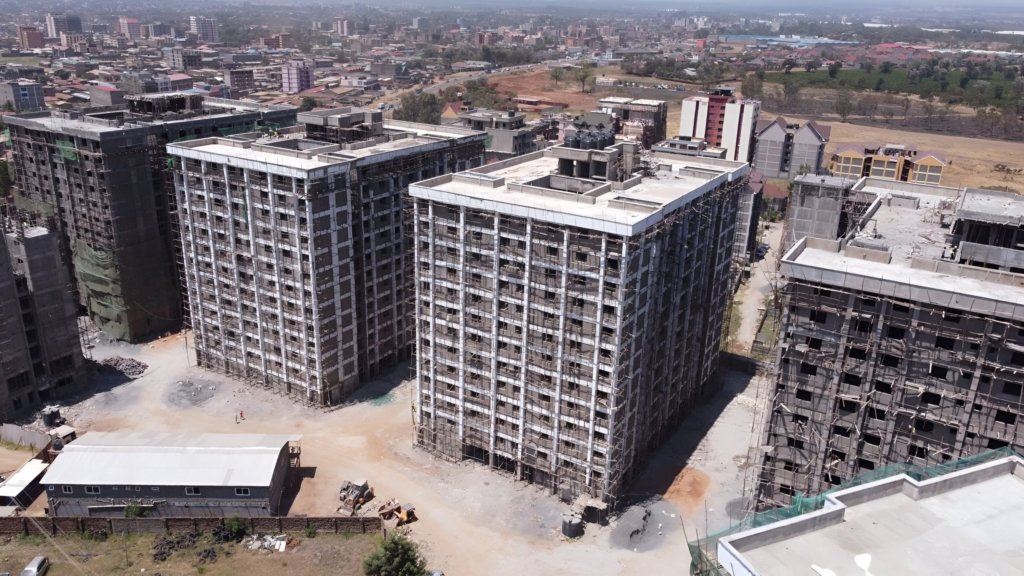In recent years, real estate joint ventures (JVs) have become an increasingly popular strategy among developers, investors, and landowners in Kenya. As urbanization accelerates and demand for housing and commercial properties rises, collaboration has emerged as a powerful tool to share risks, pool resources, and maximize returns.
Whether it’s a partnership between a landowner and a developer or two investors teaming up to build a mixed-use complex, real estate joint ventures offer a win-win solution for all parties involved.
What Is a Real Estate Joint Venture?
A real estate joint venture is a strategic partnership where two or more parties combine their assets — such as land, capital, expertise, or labor — to develop a property project together. Each party contributes something of value and shares in both the profits and responsibilities of the project.
These partnerships can be formalized through legal agreements and are often time-bound, lasting only for the duration of the development.
Why Are JVs Gaining Popularity in Kenya?
Kenya’s real estate market has seen rapid growth over the past decade, especially in cities like Nairobi, Mombasa, Kisumu, and Nakuru. However, many individuals and companies face challenges such as:
- High upfront costs
- Complex regulatory processes
- Limited access to financing
- Technical expertise gaps
Joint ventures allow participants to overcome these obstacles by sharing resources and responsibilities.
Key Benefits of Real Estate JVs in Kenya:
- Shared financial burden
- Access to land and capital
- Combining technical and managerial skills
- Faster project execution
- Risk mitigation
Types of Real Estate Joint Ventures in Kenya
- Landowner + Developer JV:
A common model where a landowner partners with a developer to construct residential or commercial buildings. The landowner provides the land, while the developer handles construction, marketing, and sales. - Investor + Contractor JV:
Investors provide funding, and contractors handle the building process from start to finish. - Public-Private Partnerships (PPPs):
Government bodies partner with private developers to deliver large-scale infrastructure or housing projects. - Co-Investment JVs:
Two or more investors pool funds to buy and develop land or existing properties.

Legal Framework for Joint Ventures in Kenya
Before entering into a joint venture, it’s crucial to understand the legal environment in Kenya. Some key considerations include:
- Land ownership laws: Only Kenyan citizens or locally registered companies can own land.
- Title deed verification: Ensure the land is free of disputes or encumbrances.
- JV Agreement: Draft a comprehensive agreement outlining each party’s roles, profit-sharing ratios, dispute resolution mechanisms, and exit strategies.
- Tax implications: Profits from real estate developments are subject to taxation under the Income Tax Act.
It’s highly recommended to work with a qualified lawyer or real estate consultant to ensure compliance and protect all parties’ interests.

Success Stories in Kenyan Real Estate JVs
1. Makadara Housing Project – Nairobi
A successful landowner-developer JV that resulted in a 50-unit affordable housing complex. Both parties shared the profits equally after repaying initial investments.
2. Kisumu Mixed-Use Development
A partnership between a local investor and an international construction firm led to the creation of a shopping mall and luxury apartments, boosting the local economy.
3. Affordable Housing Scheme in Mombasa
A public-private partnership involving the county government and a private developer provided housing for low-income earners while generating long-term rental income
❓FAQs: Real Estate Joint Ventures in Kenya
Q: What is a real estate joint venture?
A: It’s a collaborative partnership between two or more parties who contribute resources like land, money, or expertise to develop a property project together.
Q: How do joint ventures benefit real estate development in Kenya?
A: They help reduce financial burdens, improve efficiency, and enable faster project completion by combining strengths.
Q: Can foreigners participate in real estate JVs in Kenya?
A: Yes, but they cannot directly own land. Foreigners can invest via a local company or through a leasehold arrangement.
Q: Are real estate JVs legally binding in Kenya?
A: Yes, if properly documented through a legally binding agreement signed by all parties.
Q: How are profits divided in a real estate JV?
A: Profit-sharing is usually outlined in the JV agreement and can be based on contributions, investment percentages, or mutual negotiation.
Q: What are the risks involved in real estate JVs?
A: Risks include disagreements between partners, financial mismanagement, and unforeseen legal issues
